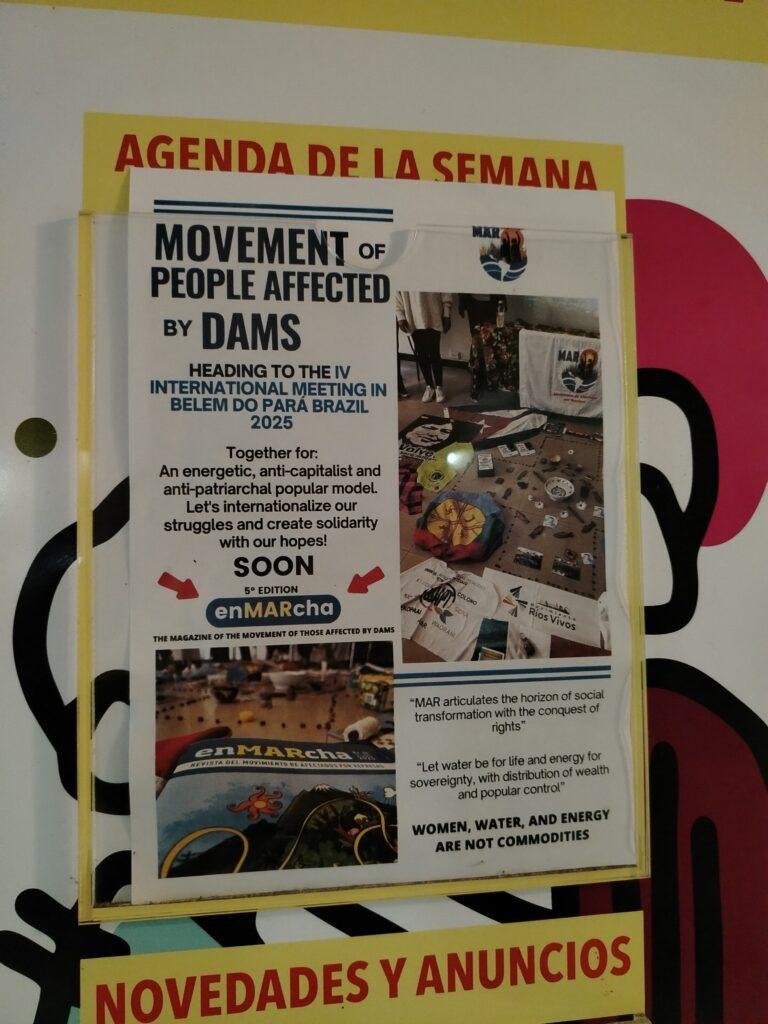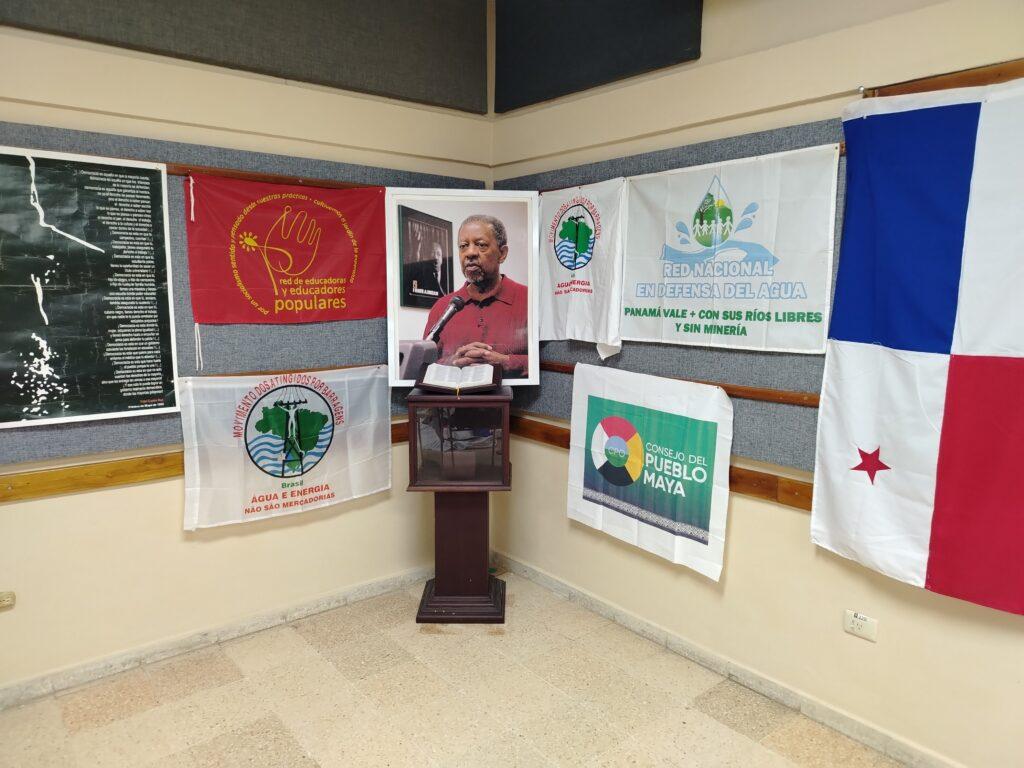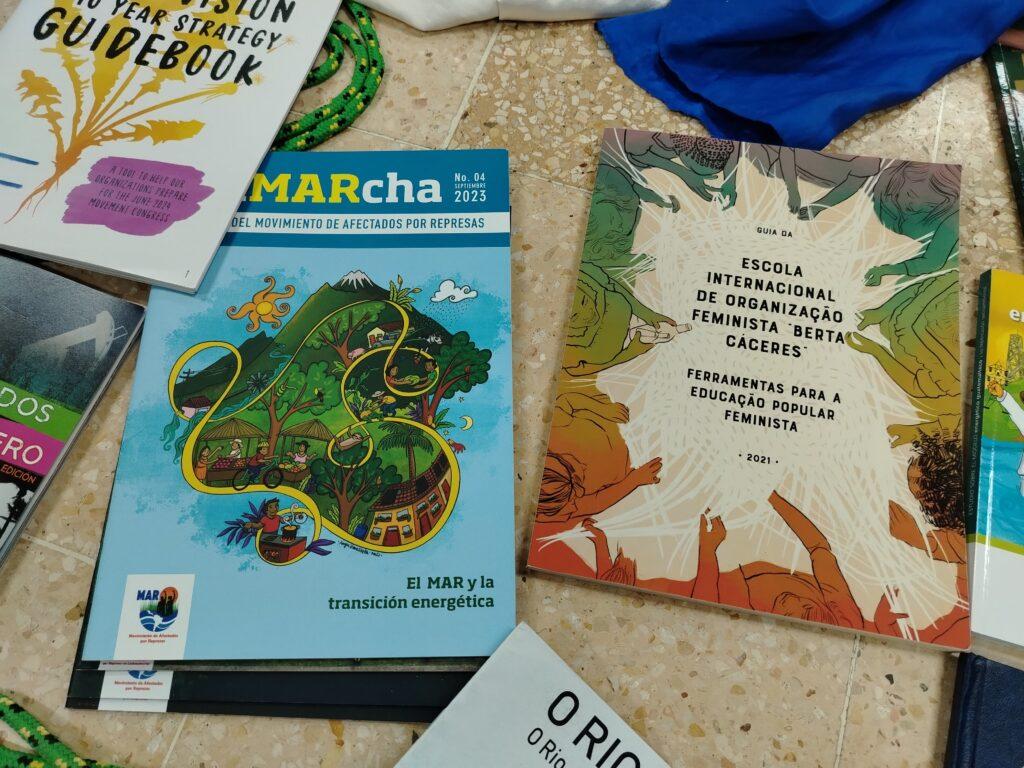Gathering to Build Justice and Popular Sovereignty Beyond Borders
Planning a process that drives collective commitment, strengthens solidarity among many different movements, and paves the way towards a global gathering is no small feat. But even so, the Movement of Peoples Affected by Dams (MAR in Spanish) accomplished it all the same.
Social movement delegates from across the Americas, Africa, Asia, and Europe gathered in late July to deepen their shared knowledge and experience in the struggle against corporate control over lands, waters, territories, energy, and other basic rights. They worked on planning their IVth International Encounter in Belém, Brazil prior to next year’s COP30 United Nations climate change conference in November 2025.
According to MAR organizers, theirs is “a growing movement that brings together local, regional and national movements of people affected by dams, mining, oil, water privatization and climate change.” It seeks to defend and guarantee the rights of these populations, their territory, and their livelihoods, and to foster the construction of a just and popular energy transition. MAR now articulates efforts between 27 popular organizations in countries across the Americas (Uruguay, Argentina, Brazil, Chile, Bolivia, Peru, Colombia, Panama, Guatemala, Honduras, El Salvador, Costa Rica, Puerto Rico, the Dominican Republic, Mexico, the United States and Canada). These include Grassroots International’s partners Consejo Cívico de Organizaciones Populares e Indígenas de Honduras (the Civic Council of Popular and Indigenous Organizations of Honduras, COPINH) and Movimento dos Atingidos por Barragens (Movement of People Affected by Dams, MAB) in Brazil. In addition to organizing on the American continent, MAR has expanded its actions and links to movements of affected peoples in Africa, Europe, Asia and Oceania, through exchanges, meetings and participation in events on the continents.
The climate crisis has generated entirely new populations who have both suffered damage caused by extreme weather events and are organizing and speaking out across the globe. MAR has decided to hold its fourth international meeting in the context of COP30 in order to push for a just society which includes popular energy sovereignty and honoring human rights. By meeting before the COP30 events, MAR delegates can help broaden the debate on the climate crisis and purposefully and strategically engage in the discussions surrounding the UN conference.
The Conference of the Parties (COP) climate change summits remain a thorny question for social movements. While on their face the summits are designed to address one of the most crucial world crises of our age, their leading voices and organizers have continually promoted false solutions like carbon offsets and geo-engineering. As Chief Ninawa from our grantee ally that represents the Huni Kui people of Brazil described COP27, “For Indigenous leaders, the COP represents a space of struggle like other spaces, with all the complexities and contradictions that it carries.”
Stay tuned in the year to come as MAR and other movements navigate advancing climate and ecological justice inside and outside international spaces like COP.




